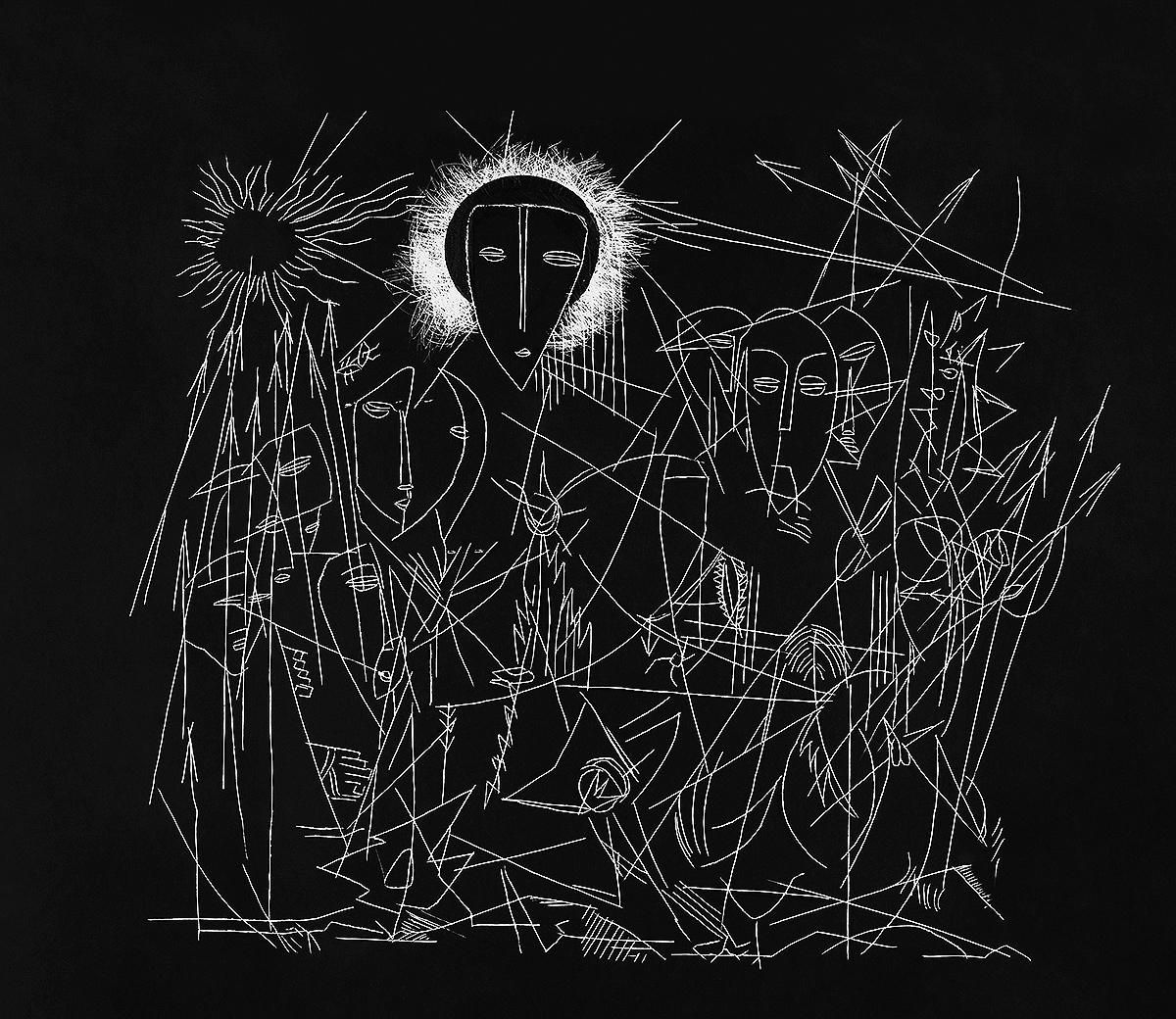
Ebrahim Alkazi’s reputation as theatre director is legendary, but few know that he was also an artist in his own right. A mentor to generations of actors on stage and screen, the memory of his own artmaking has been largely forgotten.
A considerable body of several of such Alkazi’s paintings and drawings in different media, are on display at a historic research exhibition – ‘Opening Lines’. These works have never been on public view since they were originally shown in the early 1950s and the mid-1960s.
Curated by Bombay-based poet and cultural theorist Ranjit Hoskote, this exhibition brings back to light most of the works that went into Alkazi’s exhibitions at the Asian Institute, London (1950), the Jehangir Art Gallery, Bombay (1952), and at the Shridharani Gallery, New Delhi (1965).
Ranging from watercolour, charcoal, ink, poster paint and carbon tracing to the sketch pen, marker and frottage, he demonstrated a versatile command over a variety of media and techniques, in each of his exhibition.
Alkazi’s works from the early 1950s find their historical context in a widespread post-World War II artistic fascination with Primitivism. His references explore Neolithic drawings, African masks and Oceanic sculpture, as well as the key myths of the hunt, the sacrifice and sexual communion.
Whereas, his works from the early 1960s whether landscapes, seascapes, heads, torsos, or still life arrangements, possess a certain gravitas, as though they had been crafted from shades of night.
His works engages with the figure of Christ over both the phases of activity, as a mythic presence articulating the anguish of the crucifixion and the hope of the resurrection.
‘Opening Lines’ also rebuilds, layer by layer and through the use of archival and documentary materials from the Alkazi Theatre and Art Archives the geographical, cultural and aesthetic contexts of Alkazi’s extraordinarily productive life. It explores the influential work during the early decades, when he was still only in his 20s and 30s – during which he was already active as a seminal and indefatigable shaper of culture across disciplines, anchored in multiple traditions and languages, in Bombay, London and New Delhi.
An installation by Alkazi’s granddaughter Zuleikha Chaudhari, comprising archival material: photographs of Ebrahim Alkazi’s 1961 production of Euripides’ Medea, drawings by M.F. Husain of the same production as well as Nalini Malani’s theatre collaboration with performer Alkananda Samarth (1993) of Heiner Muller’s rewriting of Medea is also part of the show.
The exhibition is on display at Art Heritage Gallery and Triveni Kala Sangam till November 11
The initiative focused on a victim-centric approach and aimed at strengthening public trust through proactive…
Six of the suspects have been arrested from different parts of Tamil Nadu and will…
The weather department has predicted a mainly clear sky during the day with the maximum…
The likely Rs 1,000 crore sale of the Tehri Garhwal House, former royal residence on…
On the principle of 'Sarvajan Hitaya, Sarvajan Sukhaya' -- Welfare for all, Happiness for all…
With hundreds reported missing in Delhi this year, this guide explains how families can use…